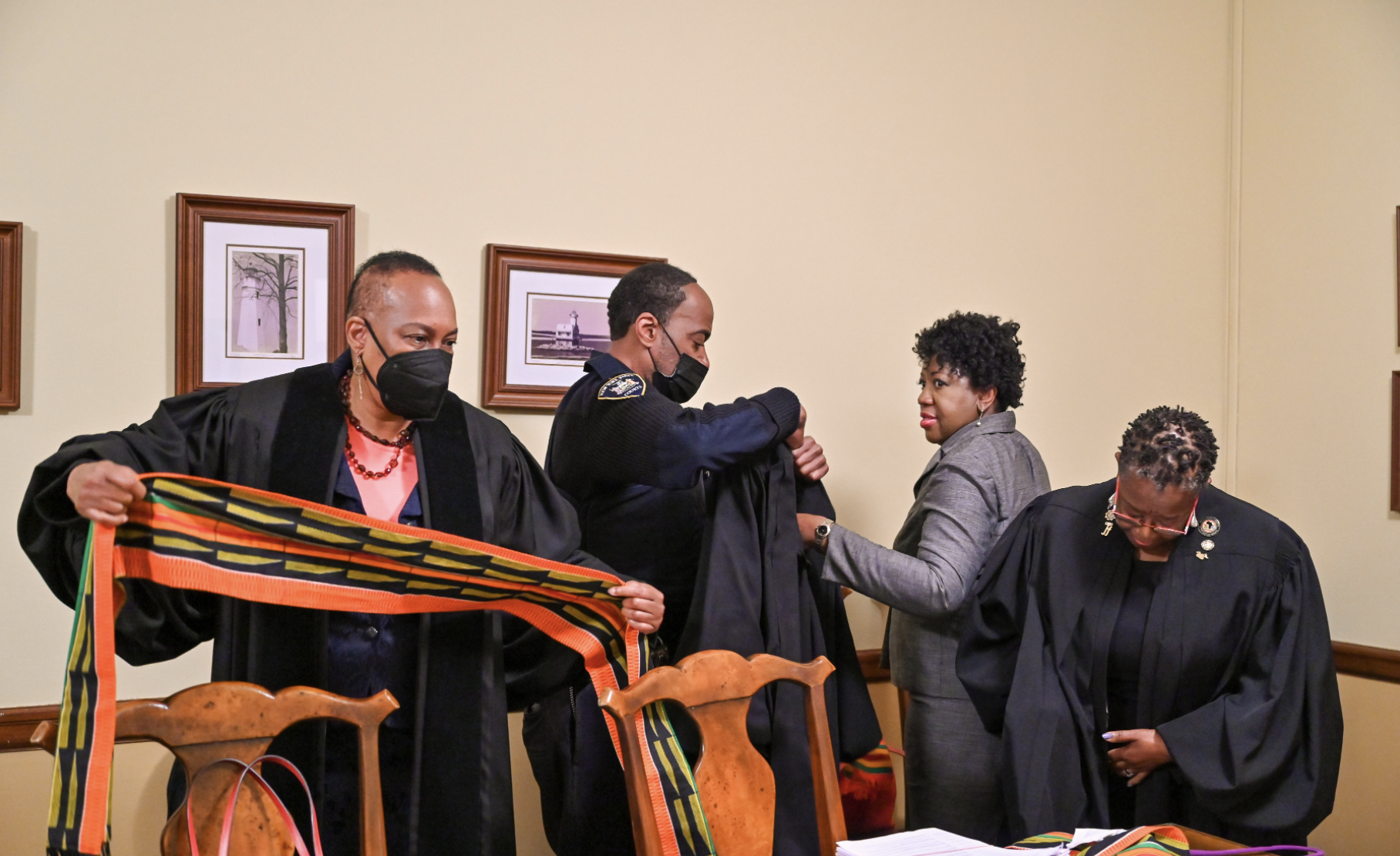3 Black women judges take bench in Appellate Term for first time in history

Justices Wavny Toussaint, Chereé Buggs and Michelle Weston prepare to make history as the first all-Black woman judge panel in Appellate Term, Second Department history. Photo by David Handschuh/UCS
For the first time in history, three Black women justices together heard cases in the Appellate Term, Second Department on Wednesday.
Queens Associate Justice Chereé Buggs, Associate Justice Wavny Toussaint and Presiding Justice Michelle Weston, all three of whom are Black women, made history Wednesday, hearing Appellate Term cases together from the bench.
To mark the occasion, the judicial panel was held inside the Appellate Division, Second Department courthouse in Brooklyn Heights, rather than in the Appellate Term’s courthouse on nearby Livingston Street.